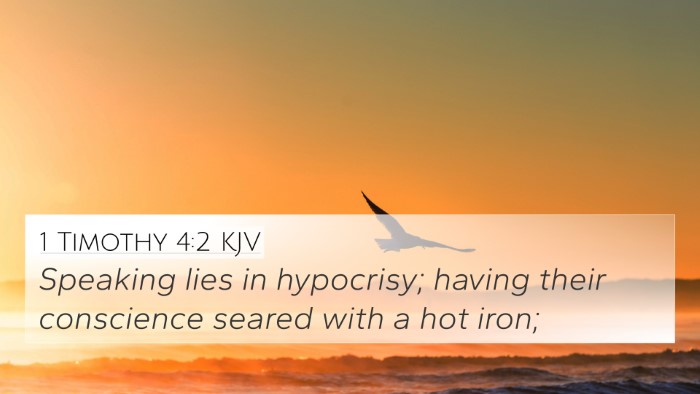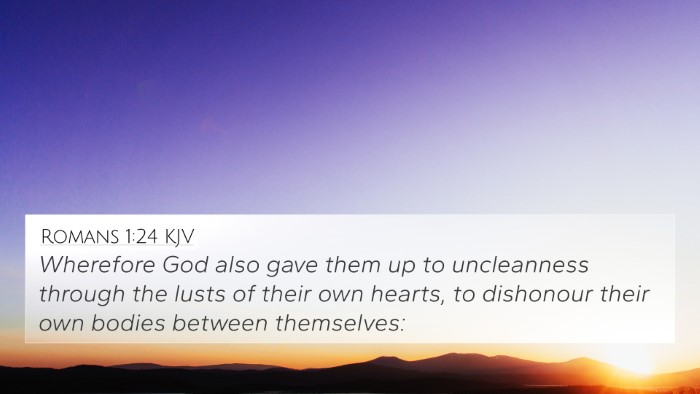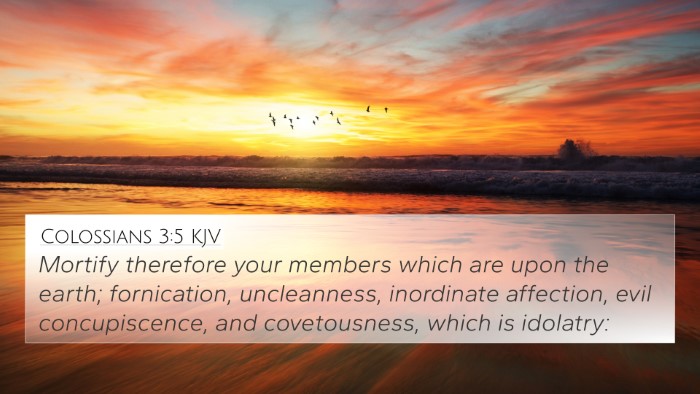Ephesians 4:19 - Biblical Meaning and Interpretation
Ephesians 4:19 states: “Who being past feeling have given themselves over unto lasciviousness, to work all uncleanness with greediness.” This verse holds significant implications regarding human behavior, spirituality, and moral decay.
Overview and Context
The Apostle Paul wrote the letter to the Ephesians to encourage believers in their faith and to address matters of unity, morality, and spiritual maturity. In chapter 4, Paul transitions from doctrinal teachings to practical applications, guiding followers on how to live in accordance with their new identity in Christ.
Summary of Insights from Commentaries
Matthew Henry's Commentary
Matthew Henry highlights the dangers of spiritual insensitivity. He explains that “being past feeling” implies a callousness towards sin. Individuals who give themselves over to sinful desires no longer recognize their wrongdoing, becoming enslaved to lasciviousness and greed.
Adam Clarke's Commentary
Adam Clarke discusses the implications of “lasciviousness” and “uncleanness,” noting that they represent a complete surrender to immoral desires. He emphasizes the loss of moral compass in individuals who engage in this lifestyle, pointing out that greediness exacerbates their sinful condition, leading to relational and societal chaos.
Albert Barnes' Notes
Albert Barnes focuses on the consequences of straying from God’s ways. He explains that unchecked lust and moral decay lead to greater sins, describing a cascading effect of spiritual blindness. This blindness signifies a deeper separation from God, further entrenching the individual in sinful practices.
Thematic Connections and Cross-References
This verse draws connections to various themes and other scriptures throughout the Bible, shedding light on the nature of sin, repentance, and moral integrity.
- Romans 1:24-32 - Reflects a similar theme of God delivering people to their sinful desires due to their actions.
- 2 Peter 2:14 - Discusses those with eyes full of adultery and who are incapable of ceasing from sin.
- Galatians 5:19-21 - Lists the works of the flesh, including uncleanness and lasciviousness, directly correlating to Ephesians 4:19.
- James 1:14-15 - On the progression of sin leading to death, underlining the effects of unbridled desires.
- 1 John 2:16 - Contrasts the desires of the flesh with the love of the Father, showing the dichotomy between a life of sin and spiritual fulfillment.
- Ephesians 5:3 - Encourages believers to avoid immorality, a direct contrast to the attitudes addressed in Ephesians 4:19.
- Colossians 3:5-6 - Advises believers to put to death their earthly nature, connecting the call for righteous living versus surrendering to sin.
Practical Applications
This verse serves as a stark warning to modern believers. Awareness of the spiritual blindfold that sin can impose is essential. Believers are urged to remain vigilant, seeking accountability and fostering a healthy community that nurtures spiritual growth.
Conclusion
Ultimately, Ephesians 4:19 emphasizes the dangers of allowing sin to flourish in one’s life. By reflecting on this scripture, one is called to examine their own lives and the impact of moral choices. Through cross-referencing other biblical texts, believers gain a comprehensive view of the consequences associated with sin and the importance of returning to God.
Additional Resources for Cross-Referencing
To deepen understanding, consider using tools such as a Bible concordance or Bible cross-reference guide. These resources can aid in identifying numerous links between the Prophets and Apostolic teachings, thereby enriching one's study of scripture.
Further Study and Reflection
As you contemplate the implications of Ephesians 4:19, consider the following questions:
- How do the themes of moral decay in Ephesians 4:19 relate to contemporary society?
- In what ways can you guard against spiritual insensitivity in your own life?
- How does cross-referencing related verses enhance your understanding of the nature of sin and redemption?














